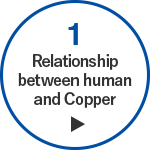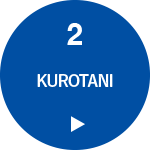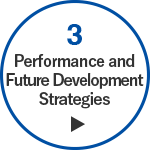LEARN MORE ABOUT US

The only publicly traded company in Japan specializing in the recycling of non-ferrous metals, with a focus on copper
Kurotani is the only publicly traded company in Japan that specializes in the recycling of non-ferrous metals, primarily focusing on copper and copper alloys. Our company's business activities are divided into two main segments: the "Ingot Business," which involves the manufacturing of copper alloy ingots, and the "Metal Recycling Raw Materials Business," which is engaged in metal recycling. Additionally, there is another segment, primarily involved in the manufacturing and selling of art and craft products.
In both the "Ingot Business" and the "Metal Recycling Raw Materials Business," the core operation involves accepting recycled raw materials of non-ferrous metals that have fulfilled their purposes. These materials undergo processing and are then sent out for the production of the next products.

Ingot Business
In the ingot business, we melt and refine recycled copper raw materials and metal recycling raw materials with copper as the main component to produce copper ingots with compositions tailored to specific applications. Particularly, in the manufacturing of corrosion-resistant aluminum bronze ingots, which are processed into large ship screws, we hold a significant share not only domestically but also globally.
Moreover, bronze ingots are processed into various water supply facilities such as faucet valves and general machinery parts, contributing to the foundation of social infrastructure.
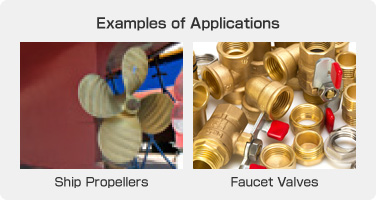
Metal Recycling Raw Materials Business
In the Metal Recycling Raw Materials Business, non-ferrous metal recycling raw materials collected from both domestic and international sources are sorted and processed through methods such as pressing. These materials are then sold to clients and utilized as materials for in-house ingot manufacturing. The sold metal recycling raw materials find various applications in society and industrial infrastructure, such as in the production of wires, copper pipes, residential facilities, and electrical products.

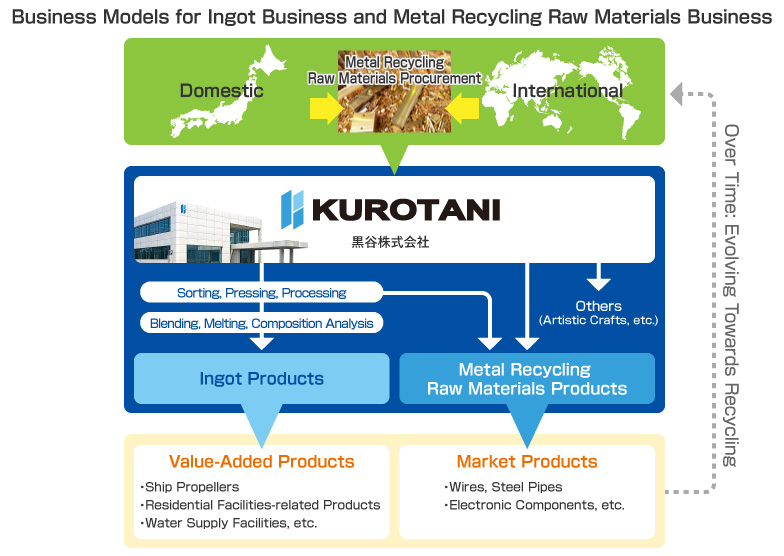
Other Business
The other business primarily involves the manufacturing and sale of artistic and craft products. Rooted in inherited traditions, these creations are renowned for their aesthetic beauty and high level of craftsmanship. With exceptional skills ranging from "molding" to "casting" and "finishing," a diverse range of artworks is being developed.

Worldwide Procurement Network Enabling Stable Supply
Our company's greatest differentiation and the lifeline of our business is the procurement network that extends not only domestically but also overseas. In any situation, we have built trust by responding to the needs of our partners, the suppliers of metal recycling raw materials, by collecting materials and consistently conducting transactions at fair prices. As a result, we have established a global procurement network, allowing us to achieve a stable supply system for our customers. We believe that striving for stable procurement and supply in any market environment is a social responsibility for a metal recycling company, especially considering the industry's susceptibility to fluctuations in copper prices driven by arbitrary speculations.
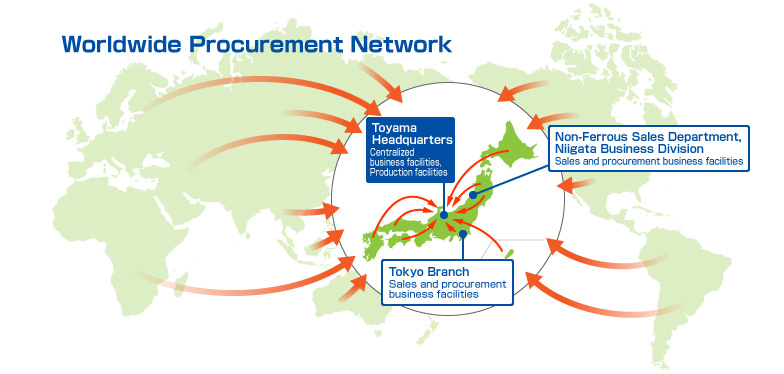
Strategic Location Facing the High-Growth Asia
Kurotani is based in Imizu City, Toyama Prefecture, where Toyama Shinko Port is located just a 10 minute drive away. The port opened in 1968, strategically positioned almost in the middle of Honshu, facing high-growth regions on the continental side such as Russia, South Korea, China, and East Asia. Recognizing its international trade significance, Toyama Shinko Port, along with its adjacent ports, Fushiki Port and Toyama Port, was designated as one of the "International Hub Ports (formerly known as Specified Important Ports)" in 1986, one of 23 ports nationwide.
Toyama Shinko Port operates regular container shipping routes to Russia, South Korea, China, and Thailand, with 42 flights per month. Continuous expansion of port functions, including the extension of the container yard at the Multipurpose International Terminal in March 2007, has further accelerated logistical capabilities in the surrounding Japan Sea region.
Furthermore, through a combination of geographical advantages and efforts aligned with the times, Toyama Shinko Port, together with its adjacent ports, was designated as one of only five "Comprehensive Hub Ports" nationwide on November 11, 2011. Being selected as a hub port crucial for logistics and tourism is expected to lead to further efforts for the enhancement and development of port functions in the future.




